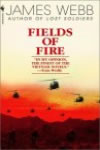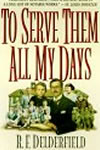Diane Greco is an novelist by day and a historian by night. She bakes scary finger cookies. And somewhere in between she writes a wonderfully long, meandering post about writers, teachers, and mothers.
This year, we tried a completely new scheme for Tinderbox weekend. I think it went very well indeed!
We leapt directly into hottest part of the Tinderbox fire with Penny Chase's discussion of Tinderbox for meetings. I'd imagined that this might be a gentle way to get started, perhaps discussing ways to use the Tinderbox map in presentations. But within minutes we found ourselves deep in Tinderbox automation: notes that automatically deduce their own type, containers that help compose agents you're going to want, and Minutes that automatically format themselves for distribution. Very challenging -- and lovely!
Then, zoom, Jon Stephan led us through Tinderbox for managing litigation. The complexities of corporate litigation (think Jarnduce v. Jarndyce) make a fascinating match for Tinderbox. For example, related suits might need to be defended in different jurisdictions with different rules, and in these suits different courts might decide the same questions of in different ways. It's fascinating to see how one might go about tracking these complexities in a way that lets you keep track of what's happening and what needs to be done.
Stephan mentioned as well that he used to keep track of things in paper notebooks, and switched to Tinderbox in part from concern that information on paper would be too easily lost. People worry about preservation of electronic media, but paper media are in some ways more fragile and more likely to become effectively inaccessible. If you can't find your notes, it didn't happen.
Al Hawkins once more did a wonderful and engaging talk, this time centering on using agents to organize course notes. Al also walked us through Tinderbox's much-overlooked Explode dialog, demonstrating how quickly he could move from an inconveniently-formatted pdf reading list for his medical informatics course to an flexible set of Tinderbox notes, neatly organized and sorted.
Finally, Kathryn Cramer wound up with a tour de force exploration of investigative journalism, showing how she built graphic overviews and Tinderbox prototype trees to explore complex cases involving money laundering, retired military personnel, fictitious secret societies with offshore bank accounts, and a complex taxonomy of threats and McGuffins that reads like Edward Gorey.
Thanks to everyone, presenters and particpants alike, for lively discussions and exciting examples!
Lifespy looks at Tinderbox: "a special piece of software"
Along with my mail programme, NetNewsWire and Firefox, it’s the only other application on my Mac that’s continually open and running.
A nice side-effect of the toxic Republican smear campaign under way in Virginia (and in several other states) has been the revelation that the James Webb who is running for the Senate is the author of Fields of Fire
, one of the finest novels I've read about the Vietnam era.
I read this in graduate school, and I had literally no idea that the two Webb's were the same person. I remember Fields Of Fire as an accomplished and daring novel. I disagreed with its politics. It argues that anti-war sentiment was cruel to returning soldiers, while I believed (and still believe) that this cruelty was necessary to ending an unjust war which the soldiers should themselves have been resisting. Fields of Fire reaches the opposite conclusion; if asked, I would have said that it was a conservative Republican argument, but one I could respect and that deserved to be heard and thought through.
I'd class Fields of Fire with Dispatches
and Going After Cacciato
, the other Vietnam books I read in that year. Assuming Webb is elected, will he be the best Senatorial novelist ever?
All that the Republicans can see nowadays, it seems, is a sex scene, and they are shocked— shocked — that soldiers would be depicted as thinking about sex. It's a despicable and silly attack, and it appears to have backfired.
Another interesting IVICA talk was Luis Francisco-Revilla's work on spatial hypertext for the visually impaired -- especially for non-sighted people.
Spatial hypertext is tends to be fundamentally visual: when we work in the Tinderbox map, we're expressing spatial relationships so we can see emergent structure. For example, here's a page in his javascript spatial hypertext tool WARP.
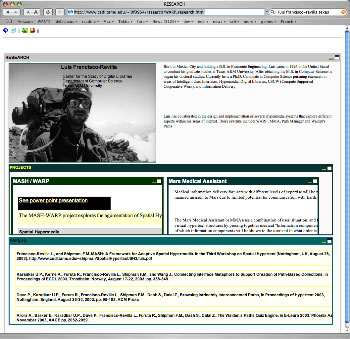
Luis' paper this year discussed how the spatial parser, which VIKI and its descendants use to automatically recognize patterns in the hypertext map, might help non-sighted people deal with the spatial structure of complex Web pages,

It would be nice, for example, if a screen reader could automatically figure out that this text is the main story and this is a sidebar and that is a pull-quote or an ad.
Maybe someone should write a Tinderbox export template for WARP, along the lines of the TiddlyWiki exporter!
Rob McNair-Huff writes about Tinderbox:
After so many years of using Tinderbox to run various Web sites, including Mac Net Journal, I have finally truly caught the Tinderbox bug by using the information manager program as a collection point for much of my work with the City of Tacoma. It's my job to stay on top of all kinds of information, and there is no better way to do that and to carry out my own developing version of Getting Things Done than to keep everything in Tinderbox.
Another part of Tinderbox weekend for which I can't wait is Alwin Hawkins' session on Using Agents to Filter Information. He also promises an excursion into using Explode to import stuff into your notes.
I've been thinking deep thoughts about Explode and related kinds of importing lately. Importing microformats, importing from spreadsheets, importing from Web services. Links everywhere.
A fresh Tinderbox screencast! This one is a quick look at using the Tinderbox outline view to organize and reorganize.

One of the sessions I'm really looking forward to at Tinderbox Weekend this weekend is J. M. Stephan's exploration of Legal Research, Investigation, and Case Management.
And we should have a first look at The Tinderbox Way, my 240-page book on Tinderbox design, concepts, and techniques.
Another interesting discussion at IVICA was prompted by DoHyoung Kim's talk on finding ways to handle multiply-branched histories (pdf). Kim works with Frank Shipman on VKB, a spatial hypertext system that preserves its UNDO history forever: you can load a your ToDo list in VKB and press Rewind and see what you had to do last March 25.
Now, this interested me because Undo objects in Tinderbox have been a headache, probably the leading source of bad behavior in the program. There are lots of tricky edges to Undo and Redo; for example, if you are deleting a bunch of notes, it's easy to be tricked into trying to delete the same note twice, or to having the left hand try to redraw the note which the right hand has just deleted. To get things started, I asked how to decide what actions were worth putting into the History, and which ones were considered ephemeral.
Example: in a text editor, you always want to be able to undo typing. But most text editors don't let you undo scrolling: if you scrolled to the wrong place and want to undo it, just scroll right back.
Frank Shipman went right to the crucial question: should navigation be undoable? There's no clear consensus on principle, though it seems evident that a system like VKB that records every action is going to pile up an awful lot of actions if you start to treat navigation as a semantic act.
Ebert didn't much like The Sisters. I see his point. Even watching the film unfold in the setting of the contemporary faculty club, you feel chill wind of the steppes. These are Russians, transplanted to New York.
But never mind that: this is a wonderful workshop piece, a chance for a bunch of superb actors to their stuff. Lots of range, lots of depth, and tons of acting against the grain. It's like coming early to a ballgame to watch batting practice. Some wonderful readings, and fine writing.
There's no economic need to throw stuff out; it is less expensive to keep things indefinitely than to take the time needed to decide what to keep and what to throw out. But Cathy Marshall's fascinating keynote at IVICA raised a host of questions about the way people actually cope with all their digital stuff.
Cathy has been going to people and exploring all the digital stuff they have and how they work with it. The corners of their hard disks, the seldom-used old computers in the kid's room or the attic, the pile of old CDs in the desk drawer: everything. This reveals some very interesting lessons:
- Backups and archives are different things. You backup your working set -- the things you use all the time. You also need to have a strategy for preserving stuff you don't actually use, but still want to keep.
- Re-encounter matters. "When I'm old, this copy of High Life will remind me of my backpacking trip to Amsterdam when I was 21, I'll put it in the steamer trunk. "
- Librarians say that a misshelved book is a lost book. But people take comfort from knowing (or believing) that some of their digital stuff is 'around here somewhere', even if they aren't sure exactly where it is.
- The fact that there's no compelling economic need to delete stuff doesn't mean you want to keep everything. For example, you might not want to keep all your ex-husband's stuff. It's not that you care about the expense of storing it; you might actively want not to have it anymore.
Cathy also had a wonderful discussion of how "an anonymous referee who happens to be in the room today" (me) had disagreed with one of her earlier papers on digital preservation, and my the referee was wrong. I argued, in essence, that preservation is fairly easy for anything that has an audience, and anything that doesn't get looked at every generation or so is going to get lost whatever we do. Cathy's refutation, in essence, is the box of family photos in the back of the closet: you don't especially want to take it down right now and look at pictures of Aunt Tillie's prom dress right now, but it's nice to know you have that box even if the next time it's opened is when your kids are packing up after the funeral.
Here's my Tinderbox map from IVICA. One thing we need to understand better, I think, is how note-taking impacts understanding, concentration, and memory. I find that sketchy Tinderbox notes help me focus in ways that paper notes did not.
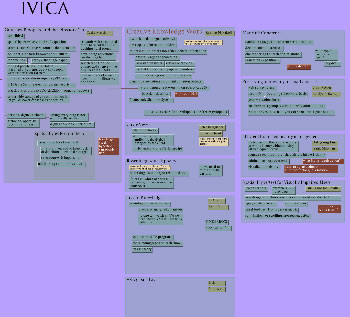
Most weblog archives are fish wrap -- rarely consulted, save for the odd Google query. That's bad.
- You spent a lot of time writing the old posts. Unless you're writing about news, those old posts might well be just as interesting to your readers as what you wrote today. But how are they going to find out?
- Google is going to rescue old posts from the A-List, because everyone links to the A-List. Unless you have tons of google juice, google won't rescue your archives.
As an experiment, in recent months I've added a few links to old posts at the bottom of most new posts. The links are mostly suggested by the Tinderbox Link Apprentice, so this only takes me a couple of seconds to add. I call these Fagerjordian because Anders Fagerjord made the argument for them in the first place.
Do links matter?
It appears that they do. Looking at some posts on my weblog from about 18 months back, I find that typical notes got about 30 readers/month. Having a Fagerjordian link boosts traffic about 20 readers/month per link. They're effective even if they're not in the current month, though recent links have more oomph than old ones.
At a rock-bottom five cents per click, that's earning a buck a month for each link.
Instead of gimmicks and pay-per-post and cajoling search engines, simply linking your archives to your new writing, and linking your archives together, can have real impact on your readership,
Tinderbox users gradually discover and express structure in the documents they use most.
For example, lots of people keep ToDo lists in Tinderbox. It's a natural idea, and it's easy to get started. Tinderbox is a tool for notes, so just start making notes about the things you want to do. You don't have to set up or decide anything. No worries about procrastination, no concerns that you'll do it wrong.
The old way to do this would have been to figure out everything you wanted to do and have someone build a database application that does what you want. This led to lots of meetings and, often, gnashing of teeth, because you don't know what you need until you need it.
Over time, you're bound to notice structure that you'd like to represent -- if only to save typing. For example, you might have some urgent tasks that need to be done right away and that you've been painting red with a broad border. What could be more natural than to make a Tinderbox prototype for UrgentTask? At minimum, this saves you steps: you choose "UrgentTask" from the popup menu and all the coloring and border-setting gets done for you.
Plus, it's neater to flag all the urgent tasks this way -- it keeps related things tied together. You might even go back and assign the prototype to existing Urgent Tasks.
This is what object-oriented programmers call refactoring. We call it "extract prototype", they call is "extract class".
As it happens, quite a few of the classic refactorings have obvious equivalents in Tinderbox as well as in research tools like VIKI/VKB and ART. When you move information from the text to an explicit attribute, that's pretty close to extract method. Or, when you split a big note into focused bits, perhaps putting all the pieces together in a container, that's a lot like push down method. When we move some commonly-used chunk of writing -- a footer, perhaps, or a configuration note as in Flint -- to a separate note that we ^include in a template, that's essentially sprout method. And then when we move the data to a server and AutoFetch it in order to facilitate sharing among lots of Tinderbox users, that's our old friend proxy object.
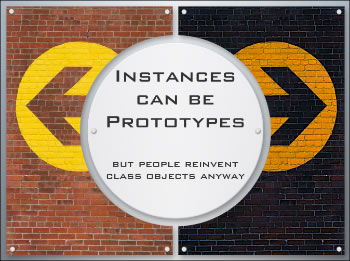
This is one of the things I'm hoping to talk about this weekend at IVICA, a symposium at College Station, Texas on spatial hypertext and visualization of information collections. It's hosted by Frank Shipman, whose work is one of the biggest influences on Tinderbox. Kumiyo Nakakoji and team are coming from Tokyo. Cathy Marshall's giving the keynote. I can't wait!
This Tinderbox weekend (October 28-29), we're going to concentrate on Tinderbox applications and tasks -- both the nuts and bolts of using Tinderbox to make and analyze notes and specific tasks and needs in law, journalism, education, health care, and planning.
It should be a unique chance to think about the state of the art -- and to explore how new features in Tinderbox 3.6 and Tinderbox 4.0 will help you get more done.
There's a lot happening under the hood in the Tinderbox world. Come join us in Boston next weekend; we're eager to hear what you're doing -- and what you need to do!
Musicologist Brinkley Yare is back to school and planning new uses of Tinderbox.
I am going to trial using Tinderbox in the research groups as a 'thinking out loud' tool; blogging will also get a look in today and tomorrow, when I will be talking with all of the new postgrads about the whys and wherefores of developing their self-reflective skills (on which they are assessed as an integral part of their award).
I've noticed a number of musicologists and composers amongst Tinderbox users. Perhaps we should start a discussion forum of a wiki section. Email me. if you'd be interested.
What do links mean?
For example, in writing about Scott McCloud's new book, I mention a frame in which he draws actor Kelley Donovan. Now, even if you're a big Buffy fan you probably don't know that Donovan is the twin brother of actor Nicholas Brendon, and it's entirely possible you don't know that Nicholas Brendon is the guy who plays Xander.
Attaching a Google link (or a Wikipedia link like this) offers a definition, which readers might find useful. But it does more: it offers an acknowledgment that says, "I don't expect you to know who this is. You might need to google the name; I'll make it easy for you.
Tinderbox makes this easy. I can say, for example, ^do(google,Jo Walton) and get the appropriate link. The macro took a minute to write:
Name: google<a href="http://www.google.com/search?q=$1">$1</a>
The Wikipedia macro takes an optional second argument, because the name of the Wikipedia article, Nicholas_Brendon, might not be precisely what we want in the text.
Name: wikipedia^if($2)^
<a href="http://en.wikipedia.org/wiki/$1">$2</a>
^else^
<a href="http://en.wikipedia.org/wiki/$1">$1</a>
^endif
This is one of the simplest way to integrate Web services into your Tinderbox workflow. We'll be talking a lot more about this subject in the next few weeks -- and at the Tinderbox Summit coming up on October 28-29 in Boston. You can be part of this, whether you're a Tinderbox novice or an old hand....
by Scott McCloud
A gloss on McCloud's essential and insightful Understanding Comics
, this book addresses novices who want to make comics. Naive manuals appear regularly, teaching people how to imitate various comic drawing styles; McCloud seeks to go deeper and to explore in somewhat greater depth the craft of telling stories in words and sequential art.
Some of his points are new and important. In a single frame, for example, he sums up beautifully why simple immersive media wouldn't accomplish everything we want, if only we all had holodecks at our disposal. In it, he draws Kelly Donovan with a word balloon in which he introduces himself as the actor who played Xander Harris's evil twin in an episode of Buffy, The Vampire Slayer. You can't say this in images: it's inherently symbolic. (I've argued this in talks for years, with reference to Euclidean geometry, organic chemistry, and macroeconomics. McCloud's example is much better.)
McCloud's subject is visual storytelling, not the mechanics of drawing cute manga babes or men in tights. His discussion of facial expression is brilliant and, I think, unmatched. (Jane Espenson, who has a new blog, agrees.)
What I miss here is a fuller treatment of story construction. What do you show, and what can you leave unshown? Mamet has a terrific lesson in On Directing Film
, walking a class of film students through the process of finding the shortest and most direct way to convey "arriving early for an important meeting" to the audience. There's much to explore: where do you place the viewer? Where do you place the characters? What must you show, and what can be omitted? How, for example, do you indicate that we are arriving early? You could have a shot of a clock. You could have someone tell us that it's early. But there are better answers.
I'm confident that there are interesting matters of craft that McCloud omits, perhaps because they seem too technical or too theoretical or simply too detailed for the notional novice reader. I miss the details. Playwrights, for example, learn that they need to either give a character something to do or get them offstage, because it's remarkably difficult to do nothing and say nothing convincingly for more than a minute or two.
Shaw didn't get this memo and sometimes
leaves actors hung out to dry for ten or twenty minutes at a stretch while others discourse on labor relations and the obligations of management. This is hard to see in a good stage production and almost impossible to see on the printed page, unless you know to look. A good stage production will have anticipated the challenge and taken it into account in casting and rehearsal, and on the page you don't see the characters who have no lines.
McCloud does offer some fascinating insights on the effect of different compositional choices, and especially on the more subtle differences between US, European, and Japanese styles and how these elements might be blended to good effect. I'd like to see much more.
Each Tinderbox note has a big bundle of information -- metadata -- that keeps track of the note, its source, and its presentation. The information is organized as a simple list of attributes and values.
Title:Grocery List
Text:skim coffee, lamb for stew, wild mushrooms...
Color: light gray
BorderColor: red
Height: 2
....
The list of attributes tends to grow, and right now it's growing quickly. For example, Tinderbox now understands the standard vCard format for personal information, and that leads to new attributes like Email, FullName , and Telephone.
In fact, the list has become so long that it's unreasonable to ask people to find and select an attribute from a menu. But sometimes you need something like a menu; you certainly can't ask people to remember the names of all those of attributes!
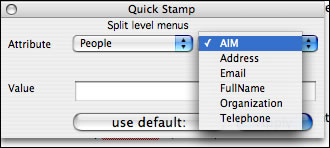
Right now, we're experimenting with a two-level popup menu. The first menu offers a selection of kinds of attributes -- Map, HTML, People, TextFormat -- and the second menu lists the attributes in the chosen category. I don't like the design much, but it does seem much nicer than the long, long menu we've used in the past. Do you know of good, compact alternatives.
by R. E. Delderfield
As Scott was welcoming us to the Inn at Weston last weekend, he pointed to a well-stocked bookcase in the library. "Take whatever you like," he urged us. "If you don't finish it, take it along with you and mail it back." A good bookshelf is important to a country inn. And so, under the influence of Australian jet lag, I found myself rereading this charming tribute to the Public School and its schoolmasters.
I had thought this an old classic, like Tom Brown's Schooldays (1857 ), though I had mentally shelved it next to The Prime of Miss Jean Brodie
(1962). But though To Serve Them All My Days seems closer in spirit to Tom Brown than to the Brodie set, its copyright date is 1972. That's strangely disturbing.
Writing in the current New Yorker about a new revival of A Chorus Line (1975), John Lahr observes that the shadow of Vietnam is not far offstage.
Seeping into its cutthroat dance-off was not just a new look but a new sound—the post-Vietnam sound of retreat. Cassie’s spiritual fatigue reflected the culture’s nostalgia for a simpler, happier life, one undamaged by the nation’s imperialism, one that would replace the destiny of me with the destiny of we. A Chorus Line’s sense of abdication spoke subliminally to its time; it is also what makes the musical so pertinent to the present, disillusioned generation.
If Vietnam casts any shadow over Bamfylde School, it is in the concluding chapter and its catalog of Old Boys who are lost in the Second World War, just as the headmaster at the center of the book was nearly lost on the First. To the end, the book's hero remains deeply convinced that the important things about a school are sympathy and sports, and that the really vital task is to make sure that the young men grow up willing to pitch in and to clean up after others. It's a world of sentimental domesticity, and the boy who goes off to fight Franco is dispatched as simply doing his bit, a bit too soon.
But it's a fine world nonetheless, a pleasant read for a crisp autum morning
Via Adaptive Path, a contentious but intriguing discussion of Web 2.0 winners and losers.
Speaking of losers, some outfit named Cyberhand has been spamming me with hundreds of very important emails. I know that these are important because each arrives with a subject line with a different synonym of "important", though all are simply trying to pump their stock price. Cyberhand does have a Web site, but it lists a phone number that reaches a benighted Las Vegas housing agency. A little googling suggests that, while the Web site says they're in Las Vegas, they're actually in Calgary (though their corporate information officer's phone is in Vancouver). I wonder if they even know this is happening; I suppose you could pump and dump some one else's stock as well as your own...
In fact, my network access has been odd all day. Some sites are fine, but many seem to be inaccessible. Email seems OK. DNS seems fine. Oy.
by Bill Buford
New Yorker editor Bill Buford spent a year in a celebrity chef's kitchen, and then studied butchery in an Tuscan hill town. This is a book reminiscent of Ruhlman's Making of a Chef and Bourdain's Kitchen Confidential. It should have worked. It doesn't.
In his review, Alwin Hawkins observes that the underlying premise is tinged with an awkward arrogance.
Think of the hubris of an amateur, untrained chef stepping into the harsh, hot, unblinking world of the commercial kitchen of one of the great restaurants in New York.
This is one of the differences between Buford's book and its predecessors, and it's telling. Ruhlman begins by surreptitiously changing into the uniform of a student and reports to Introductory Skills Kitchen, and when he gets there he immediately finds that he's late, he's violating the dress code, and he doesn't hold his knife properly. Bourdain is quietly proud of his cooking -- those frites at Les Halles! -- but he's proud, too, to tell you about all the dives he's worked on the way up, and all the ways his kitchen falls short. Buford's always tight with Mario, and if he sometimes cuts himself and sometimes gets into trouble at the pasta station, he's still comfortable.
Bourdain, in the end, is about the contrast between the refined, polished, and expensive front of the house and the rough-and-tumble kitchen. Ruhlman is about how very hard it is to cook well and professionally, since professionals need to be absurdly fast and numbingly consistent. But Heat is caught between them. Buford gets close to the celebrity chef, then veers into kitchen labor problems but never gets to their resolution. He touches on business issues but averts his gaze whenever money gets in the way of romance.
It's a fun book, with a nice sense of connection to history and to vanished kitchens. Even then, there's too much of the Medici and too little of the rustic common sense that lies at the core of the history of cooking. People used to wonder about the invention of bread, but bread is what happens if you leave the porridge too long because little Billy has wandered away or that cute little brown bear has wandered too close. Bread-thickened stews and pasta are just two ends of a continuum: we have some cereal product here and some sauce there and there's nothing else to eat. What do you suggest?
For several weeks, I've been working to fix a lame hard drive on one of Eastgate's G5 towers. I started by making lots of backups, and then added a new internal drive that would (I thought) replace the failing internal drive.
The new drive was also flaky. Lots of time with Disk Utility and Disk Warrior, lots of fiddling, lots of warning dialogs. Bad! But I'd bought on price, and I figured this was the penalty. So we bought another new hard disk.
Same results: flaky disk, bad news all round. I started worrying about bad cables, or a bad motherboard. I started budgeting for a replacement CPU.
So I bought an external firewire to make another solid backup. Returning from Australia, I tried running from the external drive. It was error-prone, too. This was getting ridiculous.
The answer: bad RAM. One of the DRAM modules was erratic! The occasional memory error generated occasional disk problems, and away we went. Yank out the bad memory, and things seem to be OK once more.
Yet another reason to back up early and often.
Aaron Swartz is on a blogging roll of late, perhaps triggered by his inspiring (though unsuccessful) campaign for a seat on the wikimedia board. Today, he has a long quote from Mamet on auditioning -- specifically on how dangerous it is for actors to put everything into pleasing the people who can hire them.
Teachers of 'audition technique' counsel actors to consider the audition itself the performance, and to gear all one's hopes and aspirations not to toward the actual practice of one's craft (which takes place in from of an audience or a camera), but toward the possibility of appealing to some functionary. What could be more awful?
He also has a fine discussion of lecture technique, keyed by an account of a recent lecture by Scott McCloud (Understanding Comics), whose new book on Making Comics
has just been released and is currently on my nightstand.
After his talk, someone commented that McCloud's presentation was the best he'd ever seen. McCloud explained that there are two kinds of presentations: 'monkey bars' where a presenter swings from slide to slide, explaining each one in turn, and 'magic carpet rides', where the presenter simply keeps talking, confident the slides will appear underneath him to illustrate a point.
The danger of magic carpet rides, unfortunately, is that flying carpets sway from side to side, and sometimes people fall off. You can easily lose people at the edges of the room and at the edges of the field: the most and least-expert people, the people who know your work best (and who may have heard it all before) and the people who have no idea what you're talking about (and who might tumble off the carpet at the first air pocket).
Still, give me a carpet any day.
Meanwhile, Anders Fagerjord and Jill Walker each complain that they need a new voice for their blogging. Each started blogging as a graduate student, and now that they are established and influential professors they feel that the old voice and the old, familiar dangers no longer seem satisfactory. Jill writes that
I’ve mostly thought of the discomfort of blogging in the last year or so as being about time, authority, too many different audiences and having to try to be tactical and smart non-stop.
Seriously, though, Jill is smart non-stop, and she's always been tactical. Being smart and tactical on her weblog shouldn't be much that strain!
I think the first time I met Jill, she was wrapping up a convincing argument on literary theory on a sunny picnic lawn in Pittsburgh because she had carefully slotted into her conference schedule a quick shopping expedition, in which she would buy Sesame Street tapes for her daughter in order that her daughter (when old enough to watch them) would grow up in Norway hearing American accents to balance Norwegian-accented English, and this would ultimately make it easier for her daughter to acquire a proper Australian accent later in life. All this fit neatly into the context of multivalent hypertext and contemporary lit crit, and she had exactly enough time, too.
And happy birthday to Lilia Efimova.
But life, like autumn
Silence, is in the details — Pasternak
Patrick Kennedy reviews last weekend's OZ-IA ) [ozia2006]
"My highlights were Ash and his discussion of user research (I still don’t know what animal I am yet, but I’m working on it), Donna and her talk on categorisation, Alex and his obsession with topic maps (by virtue of his sheer entertainment value) and James’ discussion of IA in the enterprise (yes he is my boss, but it was still a great session). Mark Berstein’s presentation on False Intentions and the Fallacy of Finding was a great opener and made us all think (no doubt harder than we expected to have to!).":
I have to agree that Alex Johannesen's enthusiasm for topic maps is infectious; it's always fun to hear someone who can enthuse about a knowledge representation format and about Monteverdi at the same time.
Also: Ruth Ellison.
What a wonderful dramatic experience! You've got to see Linklater's Before Sunset. But first, of course, you have to see Before Sunrise. And I think you've got to wait a while -- weeks, at least, perhaps a few years -- before you see Before Sunset.
Buffy and Babylon 5 naturally unfold over the course of years. Both get great power from the way the characters age, and even more power from the the gradual unfolding of narrative over a long span of time. But Linklater's doing something else here: resuming a discussion ten years later, a smart discussion among smart, interesting, and plausible people within a sentimental framework that they choose themselves while simultaneously refusing to indulge in sentiment.
Talking about Art with composer Michael Druzinsky a while ago, I was saying nice things about My Dinner with André and he pointed out that the flaw is simply André: it's a great film about a conversation, but the conversation in the film is really not everything you might wish. Julie Delpy's Celine is perfect, not only because she gets the character exactly right through long, long shots, but because she's talking about difficult, everyday things with realistic insight and intelligence.
Ebert: 'Before Sunset' is a remarkable achievement in several ways, most obviously in its technical skill. It is not easy to shoot a take that is six or seven minutes long, not easy for actors to walk through a real city while dealing with dialogue that has been scripted but must sound natural and spontaneous. Yet we accept, almost at once, that this conversation is really happening. There's no sense of contrivance or technical difficulty.
by Jo Walton
Jo Walton tackles the guilty pleasures of the Victorian sentimental novel, the charming and ever-popular tradition that runs from Austen to Galsworthy. These novels are all about sex and money, but the way characters behave about sex and money are unreal. Walton addresses the problem by creating a richly-imagined world in which the conventions are real and biologically necessary. Her Victorians are dragons. They need money: the only really comfortable bed is a bed of gold. Landowners need to exploit their tenants, because landowners are entitled to eat weak hatchlings of their tenant farmers and dragons can only grow by eating dragonflesh. Dragon maidens need to be very careful around men, because a few minutes alone with a male will make a golden maiden blush -- that is, it will turn her permanently pink, and no one will marry a pink dragon unless she's pink because she's already betrothed to him.
And so we have a rolicking good time with balls and assignations, duels and mothers-in-law, titles and livings, all captured with pitch-perfect tone and adapted to a world in which the conventions are not a facade for Society but, quite simply, the way things are.
Longrain, when I finally found it, was closed for Labor Day. So was Benzin, which is a Sailor's Thai outpost with new Thai and shiny cars, and so was Billy Kwong. Marque was dark, and so were Bird Cow Fish and Spice I Am. I was having a hard time finding dinner, though I'd finally found why the Surry Hills are called the Surry Hills. It was getting late. I had visions of writing a weblog entry about a serious waffle. (In the original waffle, Linda and I walked from 42nd street to the Met one Sunday afternoon, looking for a coffee shop for breakfast and never finding the right place)
Fortunately, I stumbled on Mohr Fish, for which I hadn't been looking. It has a very small lunch counter and three or four small tables. In back of the counter, it has a Garland and a deep fryer, two guys who know what to do, and a reach-in with terrific, tasty fish.
On the plastic board behind the counter, where you expect a list of burgers and subs, they have prawn dumplings and barramundi, flathead and barbecued trout. List of fish, have a seat, off we go. Yumm!
Prawn and fish dumplings, with lots of ginger and shallot,a bit of little chile, and terrific prawn chunks, firm and sweet and neither minced nor overcooked. Grilled barramundi, finished in in an intelligent vegetable sauce and lying atop some excellent mashed potatoes. Dinner. Hooray.
Why do small eating places all have to be the same? Wouldn't it pay to differentiate? I mean, how many lousy pizza places does Watertown need? Wouldn't you trade one of your local sub shops or burger joints for a place like Mohr Fish: good fish, cash on the barrel, two cooks and a counter-woman? If markets are conversations, why doesn't anyone seem to be asking if we'd like Mohr Fish? There's an interesting analogy to the software world, I think. There, too, we have lots of one thing and too little of all the others.
For several years, I traveled without a camera. I brought along a sketchbook and some watercolor, and when I wanted an image I sat down and spent an hour looking at whatever it was I wanted to remember. I almost never look at my travel sketches, but I remember making them: it's a good way to see. The Victorians were right about some things: learning to draw is useful, and it's not really important to draw well.
But those hours of sketching aren't popular with fellow travelers, and they aren't much help for the Web, and so I've taken to carrying a camera again. Or, on this trip, I've taken to not carrying a camera. I've been not carrying a camera for days now, ever since I forgot to carry it away from that café in Bowral.
I particularly miss having fifty or so snapshots every day as a trigger for writing. And I've found that not having either a camera or a sketchbook to hand leads to a different and more discursive way of looking. I've spent a lot of time seeing the beautiful Sydney harbor and working out exactly what I'd like to build in the next year or two. I've got some wild ideas; I think you'll see some of them soon.
This is, I think, not a better practice, or worse: merely different. Small changes in media change our approach -- but I'm not convinced that those changes are determined by the media we're carrying around. The medium was never them message.
The food writer really liked Pier, which is in Sydney's Rose Bay. It seemed like a good idea. But I got turned around en route, and wandered into Catalina instead. I only found Pier while I was waiting for the boat home.
It's sometimes good to be flexible about travel mistakes. Catalina has a terrific view of Rose Bay -- which used to be the old seaplane terminus which linked Sydney to Southampton, direct service with 30-odd stops over nine days. The view is beautiful. It doesn't need to have good food.
It's a great space, clean and crisp. The Sidneysiders at Catalina were clean and crisp as well. Some were lunching in little black dresses and heals. Some were wearing t shirts and shorts — and still managing to exude a certain elegance. How do they do that? There were two parties that must have been baby showers, and they were having a hell of a good time. In Sidney, you can be an expectant mother with a champagne flute in one hand.
- They had about nine hosts and waiters working Labor Day lunch, and I think I had some sort of natural interaction with every single one; whenever I could possibly need something, a different waiter would appear with it. This is an interesting way to do things. On one hand, it's efficient: whatever needs doing gets done by the person who happens to be free and nearby. On the other hand, this must entail greater coordination costs; you don't want two people doing the same thing, and you want the servers serving, not spending the day in meetings. Management is interesting, occasionally. (I loved Ruhlman's chapter on learning table service. Is there anything else that's good to read about life in the front of the house? How about fiction? Email me. )
- People were drinking a cocktail that looked a lot like a margarita, but each one was served in a glass with about an entire lime cut into 8ths or 16ths. What is it? Should've asked.
- In Denmark for the last paper, waiters seemed to regard wine questions as incomprehensible. "Why ask me what wine would be best? Choose whatever wine you fee like!" Here, wine questions are friendly opportunities for discussion and instruction: "I'm glad you asked that!"
- An Australian sparking wine went beautifully with three fresh oysters (lemon, vinegar, shallot) and three grilled oysters (pancetta, cress). Superb oysters, probably the best I've ever had, though some of those grand plateuax I had in Paris with Elli and crew were awfully good. I'd have thought oysters would be out of season in this hemisphere, since the rule about months with 'r' was meant for the North, but I figure they know their oysters and their habits.
- This followed an amuse of a frothy white gazpacho. It was terrific, and it even tasted of gazpacho despite being white. How do you get the flavor? Can there be blonde heirloom tomatoes in Australia? Pale cilantro? (Memo: "Pale Cilantro" could be a good title for a novel. Be my guest)
- Murray Cod braised in vanilla was a quiet and pleasant. It wasn't that far from the braised fish I've been doing at home, except for the vanilla. Make a note; those long slivers of vanilla do interesting things to the poach, and aren't that costly.
- The classic lemon tart was a classic, served with a big, beautiful dollop of marscapone. How do they make the marscapone dollop so perfectly egg-shaped?
In my talk at OZ-IA, I mentioned in passing the importance of closed circles to creating new genres. Blogging thrives on stories of inside stories, from Jennicam to Kaycee to a host of Iranian teen blogs. People like to know what's going to behind the door.
There have been lots of delightful stories about what really happened in Victorian novels. Fingersmith comes to mind, for starters, and so do the Pullman trilogy and The Vanished Child
. This one is different:
It has do be admitted that a number of the core axioms of the Victorian novel are just wrong. People aren't like that. Women, especially, aren't like that. This novel is the result of wondering what a world would be like if they were, if the axioms of the sentimental Victorian novel were inescapable laws of biology.
This is, it seems, a redaction of a Trollopian romance in which all the characters are dragons. Dragons are notoriously sensitive and delicate, and these are no exception. For example, apparently if a young female dragon is left alone in a confined space with a male dragon, and especially if they touch, this triggers irreversible biochemical changes that alter her color. A single imprudent encounter can turn the poor girl's golden scales pink, making her forever unmarriageable.
I've just started, but I'm having a great time.
